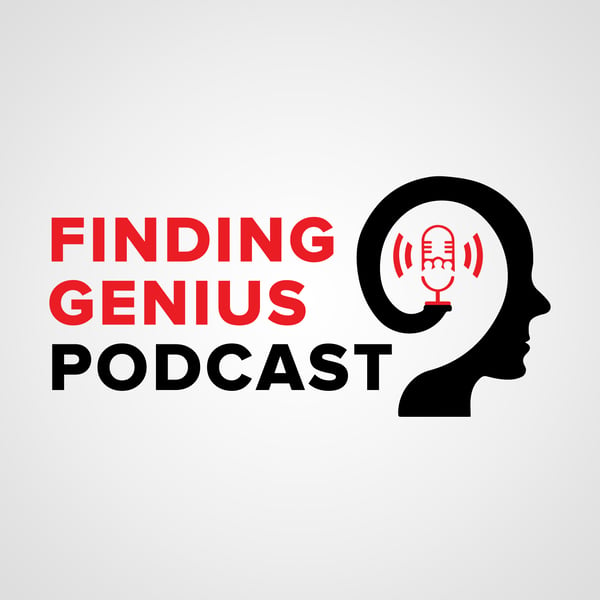Microbial Metabolisms: Harnessing the Ecology of Microbial Communities with Daniel Machado
Finding Genius Podcast
Richard Jacobs
4.4 • 1K Ratings
🗓️ 30 March 2021
⏱️ 38 minutes
🧾️ Download transcript
Summary
Even the smallest microbes work in cooperation. Researchers like Daniel Machado are recognizing the importance of microbes in the environment and combining the best of each for eco-friendly final products. He uses his computational biology skills to model possible microbial combinations for industrial and medical use.
Listen and learn
- How the fermentation industry, traditionally using single organism models, is recognizing the importance of microbial diversity,
- How the role of microbes in ecosystems models the benefits of job sharing in heterogeneous cultures, and
- What the implications of this research means for better biofuels, medicines, and ecofriendly processes.
Daniel Machado is an associate professor of Computational Biology at the Norwegian University of Science and Technology. Unlike most computational biologists, his interest started with computers and grew to include biology. He likes to think of the "cell as a complex computer and the DNA or the genome as a piece of software." While his PhD work focused on single organisms like yeast, his current work looks at microbial ecology and diversity. His research more specifically looks at ways to optimize traits of these microorganisms.
For example, he and his colleagues have found that a "synthetic consortium" of bacteria can run a fermentation process more efficiently than the traditional single organism. The consortium provides a beneficial division of labor with different bacteria doing different jobs. Furthermore, biologists can engineer the consortiums to get the best of each metabolic process, or use the best of the "competitive and comparative" strains. Often more efficient processes result with mixed species rather than a single species.
He is studying a better use of substrates as well, such as a more sustainable substrate like lignocellulosic waste rather than sugar. Finally, he describes new research along these lines with plants and how this work will produce better biofuels, industrial products, and medicines. Listen in for more spectacular uses of microbial diversity.
Episode also available on Apple Podcasts: apple.co/30PvU9C
Transcript
Click on a timestamp to play from that location
| 0:00.0 | Forget frequently asked questions. |
| 0:02.0 | Common sense, common knowledge, or Google. |
| 0:05.0 | How about advice from a real genius? |
| 0:07.0 | 95% of people in any profession are good enough to be qualified in license. |
| 0:11.0 | 5%? |
| 0:12.0 | Go above and beyond. |
| 0:13.0 | They become very good at what they do. |
| 0:15.0 | But only 0.1% are real geniuses. |
| 0:18.0 | Richard Jacobs has made his life's mission to find them for you. |
| 0:22.0 | He hunts down and interviews geniuses in every field. |
| 0:25.0 | Sleep science, cancer, stem cells, ketogenic diets, and more. |
| 0:29.0 | Come the geniuses. |
| 0:30.0 | This is the Finding Genius Podcast. |
| 0:33.0 | The Richard Jacobs. |
| 0:36.0 | Quick note before we begin. |
| 0:39.0 | The Finding Genius Foundation, as part of the Finding Genius Podcast, |
| 0:42.0 | has recently completed a book about understanding viruses. |
| 0:46.0 | So the creation of this book was to interview 100 virologists, |
| 0:50.0 | ask them a lot of deep difficult questions, take the most difficult questions, |
| 0:54.0 | and then re-interview the top 25 or so, |
| 0:57.0 | and ask them the hardest questions I could think of. |
| 0:59.0 | And we compile that all into a book. |
... |
Please login to see the full transcript.
Disclaimer: The podcast and artwork embedded on this page are from Richard Jacobs, and are the property of its owner and not affiliated with or endorsed by Tapesearch.
Generated transcripts are the property of Richard Jacobs and are distributed freely under the Fair Use doctrine. Transcripts generated by Tapesearch are not guaranteed to be accurate.
Copyright © Tapesearch 2025.

